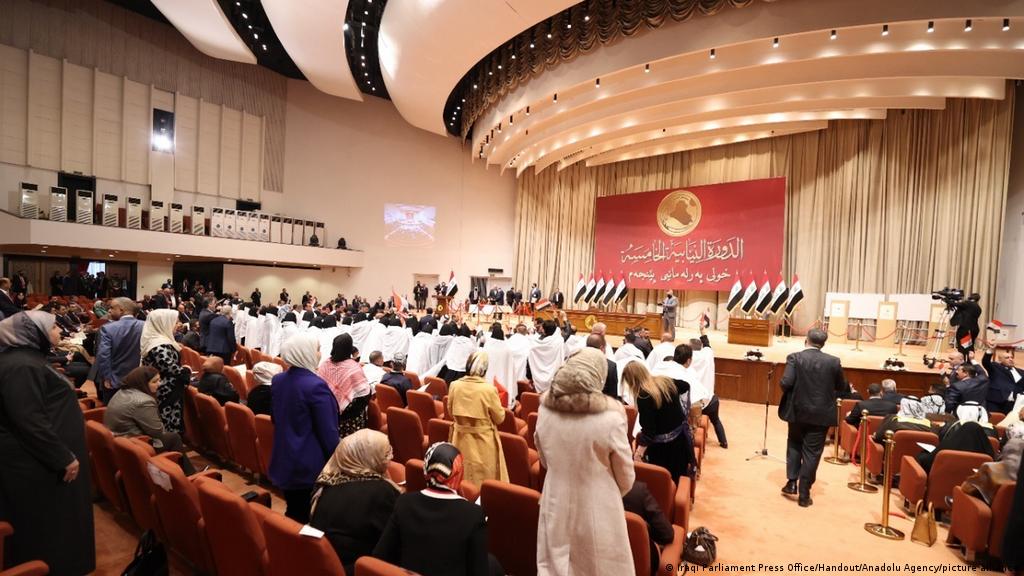Disputes remain the main feature of Iraqi politics, as efforts continue without success to elect a president. The differences between political factions is no longer confined to the major Shiite components, the Sadrist movement and the Coordination Framework, but have extended to the Kurdish factions vying for the presidency. The Iraqi Federal Court’s interpretation of Article 70 of the constitution, which concerns the election of a new president, has exacerbated the current complexity. The court maintains that a new president is to be elected by a two-thirds majority, meaning that two-thirds of parliament must be present during the electoral session to achieve quorum. This amounts to 220 of 329 members as a minimum requirement to hold a parliamentary session to elect the president.
There are, however, several factors complicating the political process in Iraq, which include:
Kurdish-Kurdish divide: There are sharp division in the ranks of the Kurdish Democratic Party and the Kurdish National Union Party, as they are allying with two Shiite factions that oppose each other. The Kurdish Democratic Party is allied with the Sadrist movement led by Mohamed Halabusi and Khamis al-Khangar, while the National Union of Kurdistan Solidarity joined forces with the Shiite coordination framework led by Nuri al-Maliki, Hadi al-Amri, Qais al-Khazali, Falih al-Fayyadh, Haider al-Abadi, and Ahmed al-Asadi.
In this context, both Kurdish parties seek to advance the cause of their candidate, current President Barham Saleh of the Kurdistan National Union Party and the Territory’s Interior Minister Riber Ahmed of the Kurdistan Democratic Party. Despite the political temptations offered by the Kurdish Democratic Party to its counterpart to abandon Barham Saleh or replace him with another candidate, the complexity arises from the latter’s insistence on solidarity with the Shiite Coordination Framework, in fear that the changing landscape of political alliances may come at the expense of its own position in the system.
Dissention in the Shiite House: Shiite political factions in Iraq are aware that it has become difficult to reinterpret Article 70 of the constitution on the quorum necessary for the presidential elections, which has forced the Sadrist movement to abandon its decision to form a majority government. However, differences between the factions continue, as Moqtada al-Sadr still seeks to control the formation of the government, while the Coordination Framework continue to argue they have a right to be represented in that government, despite their electoral defeats. The Sadrist movement has a stronger position due to its unity, in contrast to divisions within the Framework which includes multiple leaders and political forces, united mainly by their electoral losses and a desire to prevent Sadrist control of the next Iraqi Government.
Disagreement over the Prime Minister: Although a degree of understanding was reached between al-Sadr and al-Maliki , which eased the political crisis in Iraq somewhat, disagreement over the choice of prime minister continues. Al-Sadr insists on nominating his cousin, the Iraqi Ambassador in London, Jafar Al-Sadr, for the post. The leader of the Rule of Law Coalition – one of the most prominent forces of the Shiite Coordination Framework – Nuri Al-Maliki responded that there is a need for consultations and achieving a consensus within the largest bloc in parliament before determining a PM candidate’s name. The Coordination Framework suggested four other candidates: Haider al-Abadi, Qassem al-Arji, Mohammed Tawfiq Allawi and Abdul Hussein Abdan.
Moreover, the invitation by al- Sadri of the leaders of the National Union (Mohammed Halbusi and Khamis Khenger) to attend a meeting held to discuss the differences between Shiite factions following parliamentary elections, held at Sadrist headquarters in Najaf, was met by objections from the Framework’s leaders. The latter believed the discussions related to purely internal Shiite affairs. The statement issued by the Shiite Coordination Framework following the meeting reflected that they viewed Al-Sadr’s position towards Shiite factions as ambiguous, and while he respected his commitments to Sunni and Kurdish allies, he did not respect his promises towards them. From their perspective, Sadr’s terms with respect to forming a majority government appear to be directed against the Coordination Framework’s leaders.
Kurdish-Shiite controversy: The strike by Iran on sites in Erbil, March 13, alleged to be affiliated with the Israeli Mossad, led to disagreements between the Kurds and Shiites, over Tehran’s support to some political forces in Iraq. While investigations are still ongoing, should it be established that the sites subject to these strikes were indeed linked to Israel, Sadr will not feel obliged to honor his alliance with the Kurdish Democratic Party led by Barzani, which may undermine his three-way alliance with the Kurdish and Sunni forces, and would enhance the prospects of the Kurdish National Union’s candidate Barham Saleh.
Alternatively, if investigations prove otherwise, but there continues to be no breakthrough in the impasse between the Sadrist and the Shiite Coordination Framework , the Framework’s alliance with the Kurdish National Union party would be undermined, thus reinforcing the position of Reber Ahmed, the Democratic Party candidate. The continued inability to elect a president due to these differences may trigger the worst-case scenario of dissolving Parliament and a new round of elections.
In conclusion, while some analysts bet on a rapprochement between the Sadrists and the Shiite Coordination Framework to end the political impasse in Iraq, the competition between Kurdish factions regarding the naming of Iraq’s next president suggests there are no indications of a real breakthrough. Kurdish parties seek to mobilize their alliances to either further their own candidates or to block candidates from the competing party, thus prolonging the stalemate.


